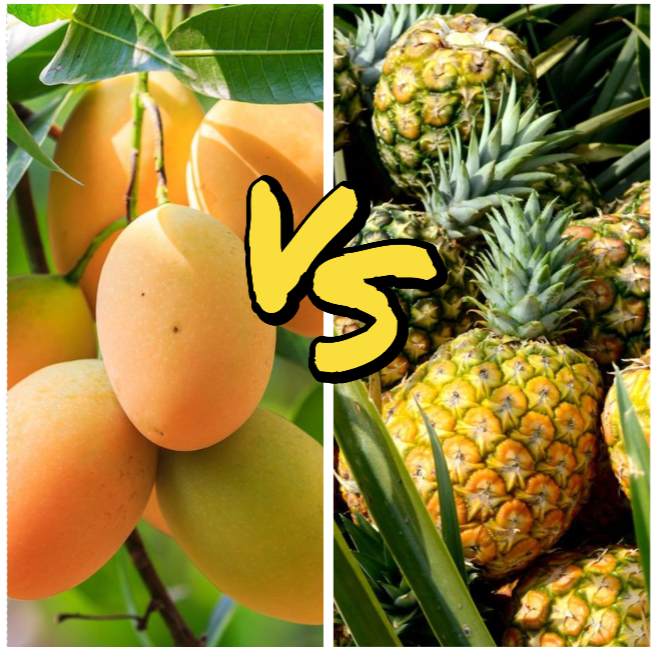Watermelon is a sweet and juicy fruit that many look forward to during the warm summer season. It’s often a favorite at outdoor events and family gatherings. Sadly, some people have allergic reactions after eating watermelon. This article will discuss watermelon allergies, including why they happen, the symptoms to watch for, how to diagnose the condition, the best ways to manage it, and tips to handle the allergy in daily life.
Allergies happen when the body’s immune system reacts to something harmless as though it’s dangerous.
A watermelon allergy happens when someone’s immune system responds to proteins in watermelon. When this person eats or touches watermelon, their body makes histamines and other chemicals. These chemicals can cause allergy symptoms.
Table of Contents
- Is It Possible to Have a Watermelon Allergy?
- What Causes a Watermelon Allergy?
- 1. Reactions due to Oral Allergy Syndrome (OAS)
- 2. Pollen and Watermelon: A Cross-Reactivity Issue
- Recognizing Watermelon Allergy Symptoms
- 1. Symptoms in the Mouth
- 2. Symptoms on the Skin
- 3. Breathing Difficulties
- How to Diagnose a Watermelon Allergy
- 1. Checking Your Health Background and Doing a Physical Checkup
- 2. Tests for Allergies
- How to Manage a Watermelon Allergy
- 1. Staying Away from Watermelon and Similar Foods
- 2. Medication to Help with Symptoms
- Tips for Living with Watermelon Allergy
- 1. How to Handle a Watermelon Allergy Day to Day
- 2. Fruits and Other Sweet Alternatives
- Conclusion
- FAQs
Is It Possible to Have a Watermelon Allergy?
Yes, some people can be allergic to watermelon. This happens when their body reacts to proteins in the fruit. The reaction can cause itching in the mouth, skin rashes, and breathing problems.
While not as common as other food allergies, watermelon allergy does happen. It’s reported more in places where people eat a lot of watermelon, like in tropical and subtropical places. But truly, anyone, anywhere can develop this allergy.
What Causes a Watermelon Allergy?

1. Reactions due to Oral Allergy Syndrome (OAS)
Oral Allergy Syndrome (OAS) is a big reason why some people are allergic to watermelon. OAS makes the immune system respond to proteins in some fruits and vegetables that look like pollen to the body.
People who get OAS usually have pollen allergies. When they eat watermelon, their bodies treat proteins in the watermelon like pollen, leading to an allergic reaction.
2. Pollen and Watermelon: A Cross-Reactivity Issue
Some people’s watermelon allergy is because of a cross-reaction between watermelon and certain kinds of pollen.
For instance, if someone is allergic to ragweed pollen, they might get allergy symptoms when they eat watermelon, because the proteins are alike.
Still, it’s worth mentioning that not everyone with pollen allergies will react to watermelon. It varies from one person to another.
Recognizing Watermelon Allergy Symptoms
1. Symptoms in the Mouth
Right after eating watermelon, a person with an allergy might feel itching or tingling in the mouth, lips, tongue, or throat. They could also have swelling or soreness in these areas, which can make swallowing hard.
2. Symptoms on the Skin
Another sign of a watermelon allergy is skin reactions. An allergic person might get hives, itching, or red skin after eating watermelon. In the worst cases, they might also develop angioedemia, which is when the area beneath the skin swells up.
3. Breathing Difficulties
Sometimes, a watermelon allergy causes problems with breathing like a stuffy nose, sneezing, coughing, a wheezy chest, or trouble breathing. In rare situations, a very serious allergy reaction called anaphylaxis could happen, and this is an emergency that needs fast medical help.
How to Diagnose a Watermelon Allergy
1. Checking Your Health Background and Doing a Physical Checkup
A doctor will want to know what symptoms a person has, when the symptoms happen, and if there’s any other allergies or health issues. A physical checkup might be done to look for visible allergy signs.
2. Tests for Allergies
If a doctor thinks someone has a watermelon allergy, they might suggest tests like a skin prick test or blood test. These tests can show if there are any allergy-causing substances, called allergens, that the person reacts to.
The tests can see if the body has antibodies called IgE that specifically fight against watermelon proteins.
How to Manage a Watermelon Allergy
1. Staying Away from Watermelon and Similar Foods
The main strategy to deal with a watermelon allergy is not to eat watermelon or any foods that might have watermelon in them. It’s important to always check food labels. Since watermelon can be in drinks, ice treats, or mixed fruit salads, it’s easy to accidentally eat it.
Because of the issue of cross-reactivity, it might also be necessary to avoid other fruits or veggies that could trigger a reaction.
2. Medication to Help with Symptoms
In some cases, people might need medicine to help with the symptoms of a watermelon allergy. Antihistamines can cut down on itching and sneezing. If the reactions are really bad, they might need steroids or an emergency medicine called epinephrine.
Tips for Living with Watermelon Allergy
1. How to Handle a Watermelon Allergy Day to Day
Dealing with a watermelon allergy takes some effort, but it is possible to live a normal, happy life despite it. Here are some tips to help:
- Learn as much as you can about watermelon allergy and what triggers it.









